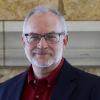 Political Polarization and the College Classroom
Political Polarization and the College Classroom
Tracy McKenzie, Ph.D., Arthur F. Holmes Chair of Faith and Learning; Professor of History
It was a pleasure to take part in the recent CACE-sponsored faculty seminar on “Political Polarization and the College Classroom.” The topic was timely, the conversation was constructive and encouraging, and I was repeatedly reminded of how blessed I am to be part of the Wheaton community.
The seminar readings that resonated most with me were those that dealt with the contested concept of academic freedom. Two readings especially made an impression. In his provocatively titled essay “Against Academic Freedom,” Notre Dame political scientist Patrick Deneen explored the historical roots of the concept and argued that it was intentionally formulated and advocated “in opposition to the distinct identity of Christian institutions and society.” A “neutral” educational space was never the goal, nor were its advocates genuinely open to promoting all viewpoints. Much more positive in their view of academic freedom, Carleton College professors Amna Khalid and Jeffrey Snyder wrestled with the thorny question of how to balance a commitment to that principle with the simultaneous goal of fostering an inclusive learning community. They maintain that occasional tensions between these two goals are inevitable, and that when tensions arise, the commitment to academic freedom must prevail. After all, “education should not be intended to make people comfortable, it is meant to make them think.”
Two reactions: First, whatever its historical origins, Deneen is correct about the goals of “academic freedom” as it functions today. The term itself is misleading. What the phrase cannot possibly mean is the liberty publicly to explore, espouse, and promote any conceivable value or set of values as an employee of an academic institution. Such a definition would be utterly useless, for I know of no place where it exists. It does not exist at Wheaton College, and it most certainly did not exist at the large public university where I taught for two decades before coming here. Every school, whether Christian or secular, necessarily establishes boundaries within which they expect their faculty to operate, boundaries generated by the cause that we serve and the values we cherish most. For the past century, the drive for “academic freedom” has functioned, not to make higher education more genuinely pluralistic, but to elevate one set of values while proscribing another. To call this “freedom” is Orwellian doublespeak.
It would clarify the conversation considerably if we dropped the term “academic freedom” entirely. When the twenty-first century college or university speaks of freedom, it really has in mind a concept closer to the seventeenth and eighteenth-century meaning of liberty. Three centuries ago, liberty meant the freedom to behave uprightly. It was commonly contrasted with license, the practice of abusing freedom by behaving immorally. From the dominant viewpoint of the secular Academy, appeals to religious truths are intrinsically illegitimate, which means that no educator has a moral right to make them in the classroom, and an institution committed to academic freedom has every moral right to prohibit them. It’s a comforting rationale.
Second, I was struck by how Khalid and Snyder frame the tension between academic freedom (as defined in the secular academy) and the goal of making our classrooms into “safe spaces” where every student feels valued and respected. As an educator, I am struck by the limitations of the metaphor of the “safe space.” I want my students to feel both affirmed and challenged, and I doubt that truly transformative education is possible when either is lacking. As a Christian educator, I doubt the wisdom of framing the question that concerns Khalid and Snyder in terms of the tension between inclusiveness and academic freedom. Rather than asking, “What does academic freedom allow in this instance?” it makes more sense to ask, “What does the law of love require?” This might lead us, in turn, to the Christian virtue of hospitality as a useful metaphor. I’ll leave you with an extended quotation from Reaching Out, by Henri Nouwen, the 20th-century Dutch catholic priest and scholar: Hospitality . . . means primarily the creation of a free space where the stranger can enter and become a friend instead of an enemy. Hospitality is not to change people, but to offer them space where change can take place. It is not to bring men and women over to our side, but to offer freedom not disturbed by dividing lines. . . . It is not an educated intimidation with good books, good stories and good works, but the liberation of fearful hearts so that words can find roots and bear ample fruit.
